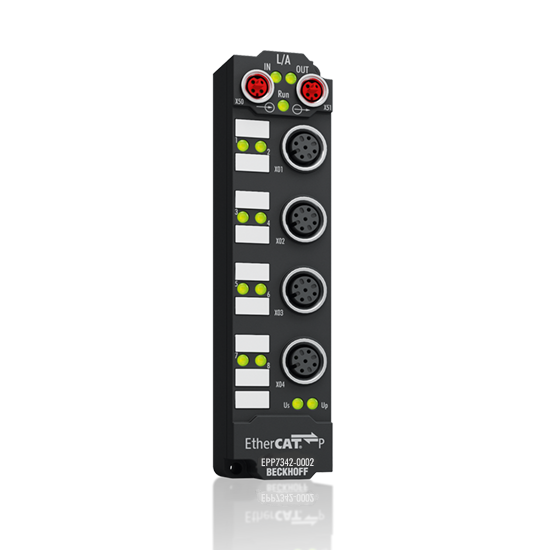Products
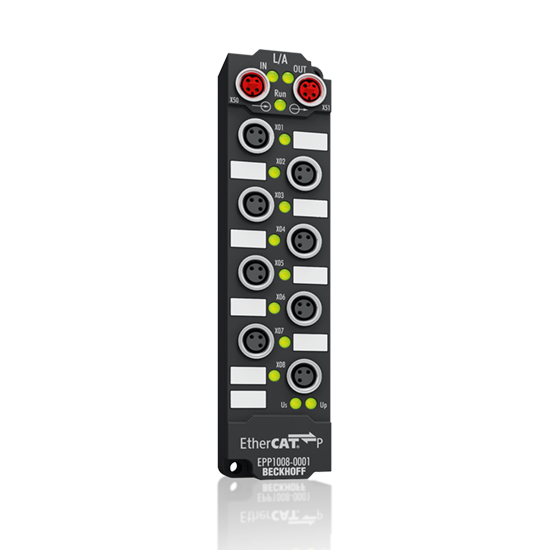
EPP1xxx | Digital input
The EPP1xxx digital inputs are intended for the processing of digital/binary signals.
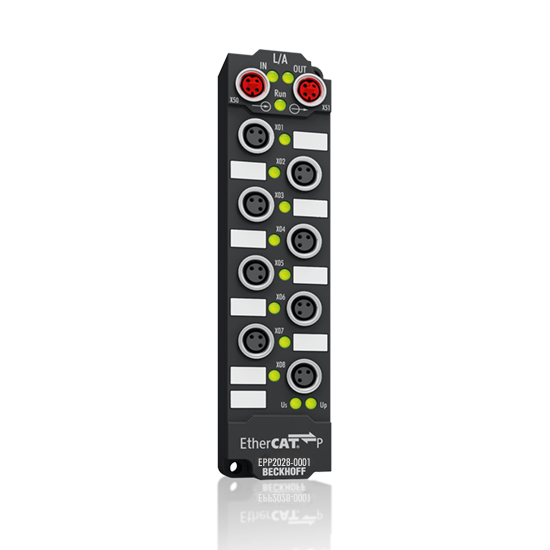
EPP2xxx | Digital output
The EPP2xxx digital outputs are intended for the processing of digital/binary signals.
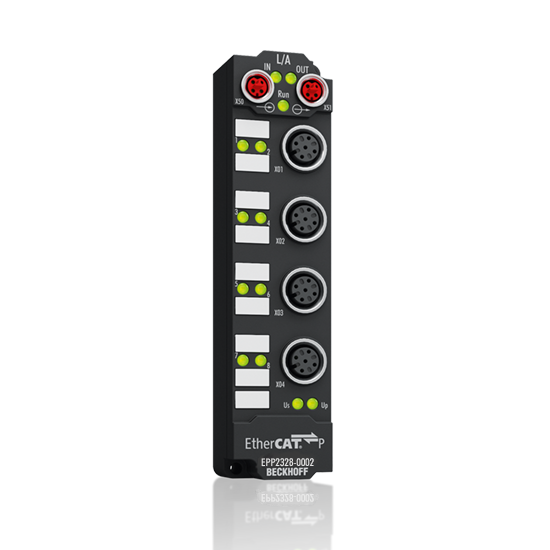
EPP23xx | Digital combi
The EPP23xx I/O modules combine digital inputs and digital outputs in one device.

EPP3xxx | Analog input
The EPP3xxx EtherCAT P Box modules process analog signals with the levels 0 to 10 V, ±10 V, 0 to 20 mA and 4 to 20 mA.
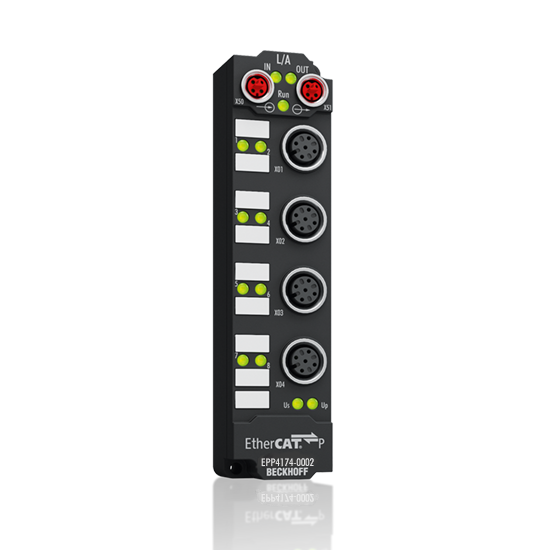
EPP4xxx | Analog output
The EPP4xxx EtherCAT P Box modules process analog signals with the levels 0 to 10 V, ±10 V, 0 to 20 mA and 4 to 20 mA.

EPP43xx | Analog combi
The EPP43xxx modules combine the acquisition of analog input and output currents and voltages in one module.
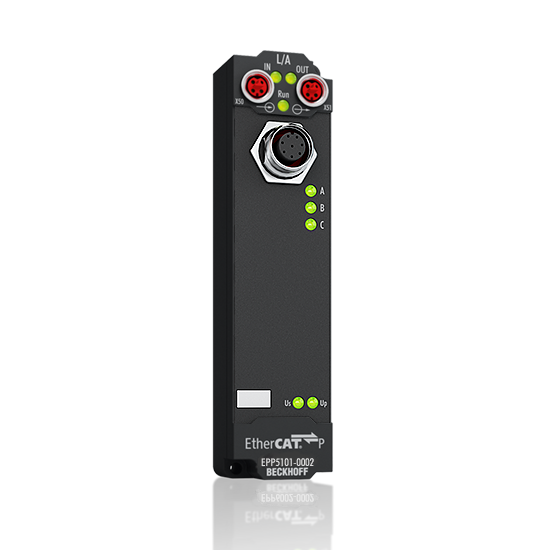
EPP5xxx | Position measurement
The EPP5xxx EtherCAT P Box modules support other complex signals such as SSI encoders or incremental encoders.
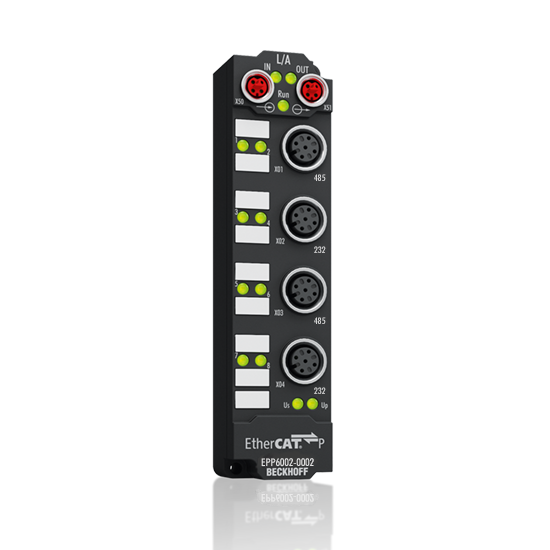
EPP6xxx | Communication
The EPP600x serial interfaces enable the connection of devices with RS232 or RS422/RS485 interfaces to the control level.
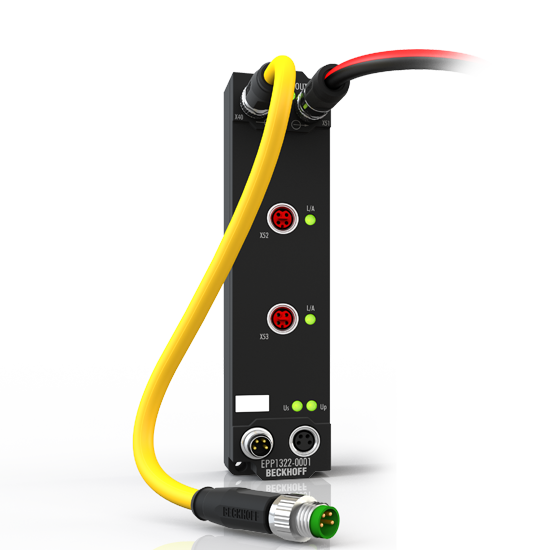
EPPxxxx | System
Various EtherCAT P Box modules are also available for system tasks such as junctions, power distribution, etc.
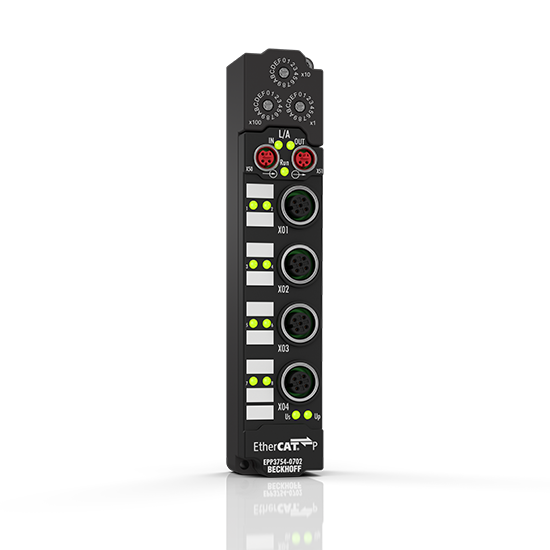
EPPxxxx | ID switch
ID switch modules with hexadecimal rotary switches offer fast addressing from 0 to 4095 for flexible device assignment.
EtherCAT P: the sensor, actuator and measurement bus
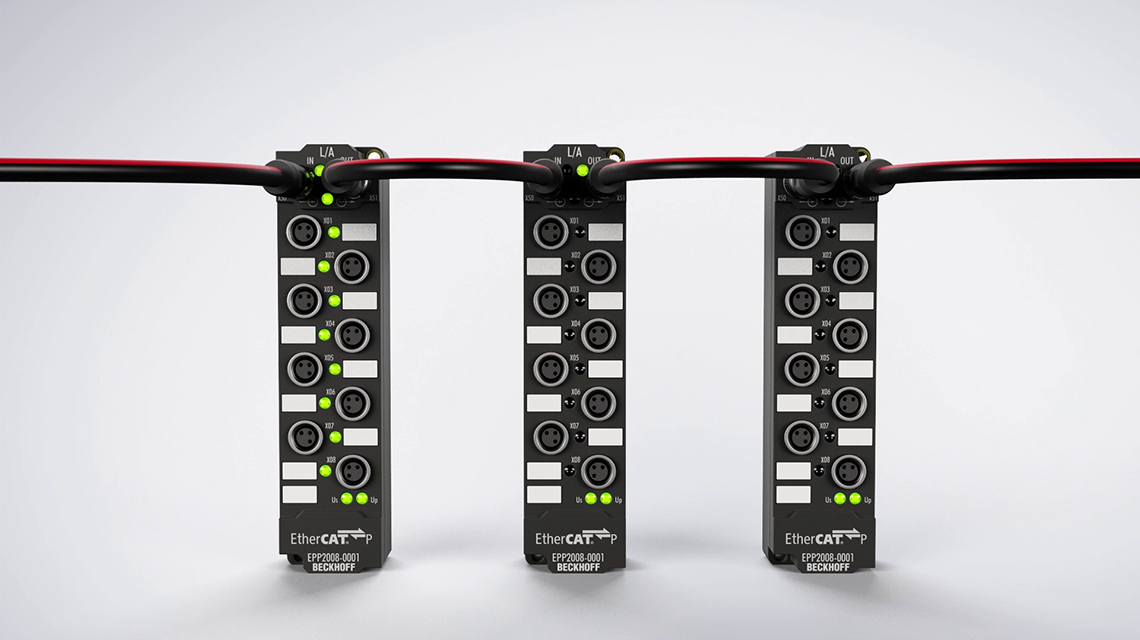
EtherCAT P combines communication and power in a 4-core standard Ethernet cable. The 24 V DC supply of the EtherCAT P slaves and the connected sensors and actuators is integrated: US (system and sensor supply) and UP (peripheral voltage for actuators) are electrically isolated from one another with a current of up to 3 A each for the connected components. All the benefits of EtherCAT are retained, such as the free topology, high speed, optimum bandwidth utilization, the processing of telegrams in passing, highly precise synchronization, extensive diagnostics, etc. The currents of US and UP are directly coupled to the cores of the 100 Mbit/s line, resulting in a very cost-effective and compact connection. EtherCAT P offers benefits both for connection of remote, smaller I/O stations in the terminal box and for decentralized I/O components locally in the process. A dedicated plug family was specially developed for EtherCAT P, in order to prevent potential damage caused by incorrect connection with standard EtherCAT slaves. It covers all applications from the 24 V I/O level through to drives with 630 V AC or 850 V DC and a current of up to 72 A.
The EPPxxxx EtherCAT P modules in IP67 protection cover the typical requirements spectrum for I/O signals: digital inputs (3.0 ms or 10 μs filter), digital outputs with 0.5 A output current, combination modules with digital inputs and outputs, analog inputs and outputs with 16-bit resolution, and thermocouple and RTD inputs. The EPP13xx EtherCAT P junctions are available for flexible topology configuration. The current carrying capacity of 3 A per EtherCAT P segment already enables a wide range of sensors/actuators to be used. If it should be necessary to feed-in the voltages again, the EPP1332-0001 EtherCAT P junction can be used to feed in both US and UP again at any point. The EPP1342-0001 should be used for topological branches without voltage boost.
